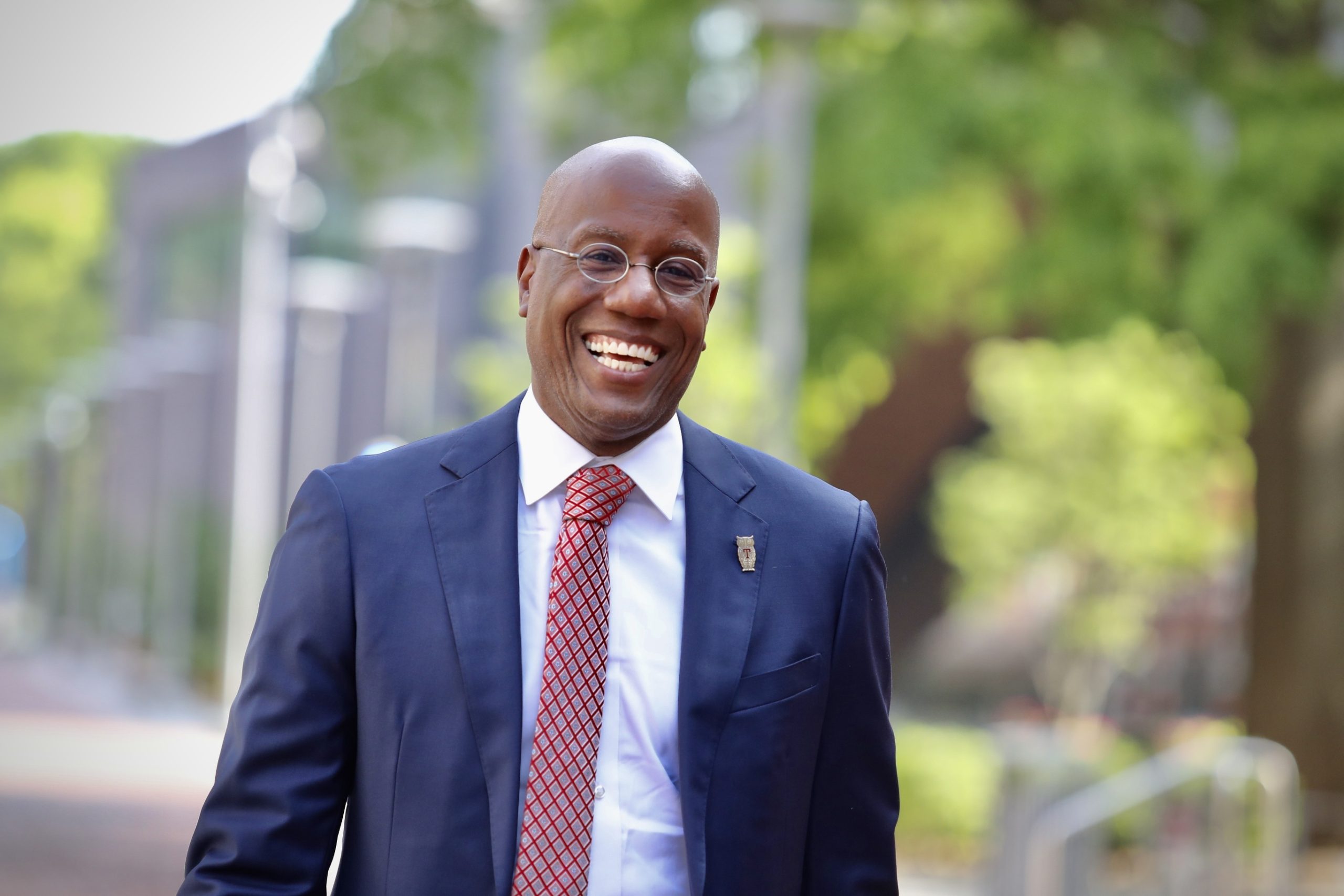Courtesy of Temple University
COVID-19 has left no one unscathed. Businesses—regardless of sector—have had to pivot. Employees have had to adapt to new ways of working. Students have had to adjust to new ways of learning.
As the pandemic has unfolded, we’ve witnessed warp-speed changes significantly impact businesses, the job market, and higher education.
The force of these changes, though, existed long before COVID-19. Flexible work and study arrangements, metric-driven performance, and upskilling and reskilling to mitigate the impact of automation have been ripe opportunities for some time. It just took a global pandemic to see that they aren’t impossible or impractical.
Now, it’s critical that both businesses and institutions of higher education capitalize on this transformative moment so that they—as well as students and employees—can thrive in a post-COVID-19 world.
Responding to a Crisis
The pandemic required businesses to shift their attention away from delivering on their value proposition and instead make quick decisions about how to operate during a pandemic. In some instances, those shifts, which for some included temporarily ceasing operations, were considerable. It’s been widely documented how airlines and hospitality were impacted, first by COVID-19 lockdowns and then consumer hesitancy.
Other companies fared better. Peloton experienced explosive growth throughout 2020 as gyms around the country closed. Zoom provided reliable technology to keep businesses running—a change in operations that is not going anywhere. Founder and Chief Executive Officer Eric S. Yuan summed up just how much has changed when he said, “Work is no longer a place, it’s a space where Zoom serves to empower your teams to connect and bring their best ideas to life.”
Now, with vaccines readily available in the U.S. and many organizations adopting hybrid operations, it is worth exploring how companies can use these rapid changes to bring increased value to employees.
Navigating a New Way of Working
Upskilling and reskilling are crucial for employees to keep pace with evolving workplaces, both in normal times and during a pandemic. In general, COVID-19 operational changes revealed the hunger employees have to upskill and reskill. The PwC Hopes and Fears 2021 Survey compiled interesting insights into employees’ thoughts on the topic.
- 40% reported successfully improving their digital skills during the pandemic
- 77% are ready to learn new skills or completely retrain
- 74% see training as a matter of personal responsibility
Additionally, most workers said they believe they can meet the challenges of automation—and they proved it by learning new digital skills and by quickly adapting to remote work.
But the pandemic has also led to the “Great Resignation.” Ulrike Malmendier, a professor at the University of California, Berkeley, indicates in her paper “Exposure, Experience, and Expertise: Why Personal Histories Matter in Economics,” that the experience effects of the pandemic, such as working remotely, have changed the way we view our lives.
That’s driving the priority Gen Z and millennials increasingly place on flexible work arrangements. Nearly half of Gen Z (45%) and millennial (47%) employees surveyed by PwC said they are willing to give up 10% or more of their future earnings in exchange for the option to work virtually from almost anywhere.
What Can Higher Ed Do?
The urge to question the value of higher education intensified with the pandemic. A report released by the think tank Third Way shows the value of higher education remains high despite a slight shift in perception resulting from the pandemic. Yet undergraduate enrollment has declined since 2019, with public four-year institutions showing the greatest losses. A recent report from the National Student Clearinghouse Research Center found that more than one million students have opted out of higher education during the pandemic.
As faculty—those responsible for educating and equipping the future workforce with the knowledge and skills they need to succeed—the imperative to deliver better outcomes is one that we must take seriously.
How do we continue to convey the value of a degree, particularly in these changing times?
How do we equip graduates with transferable skills so they can succeed as their chosen fields continue to change?
How do we impart a lifelong zeal for learning so, as employees, college graduates remain curious and seek opportunities to enhance their knowledge and skills?
Institutions of higher education can introduce programs to increase access and develop curricula with an emphasis on flexibility and customization. This gives students the experience to shift and adapt in the classroom, so they’re prepared for on-the-job changes. This type of hands-on and outcomes-focused experience is a hallmark of a Temple education. Throughout the pandemic, Temple students have continued their education while learning how to pivot and adapt successfully. This approach must continue so that the future workforce is prepared when the next crisis emerges.

